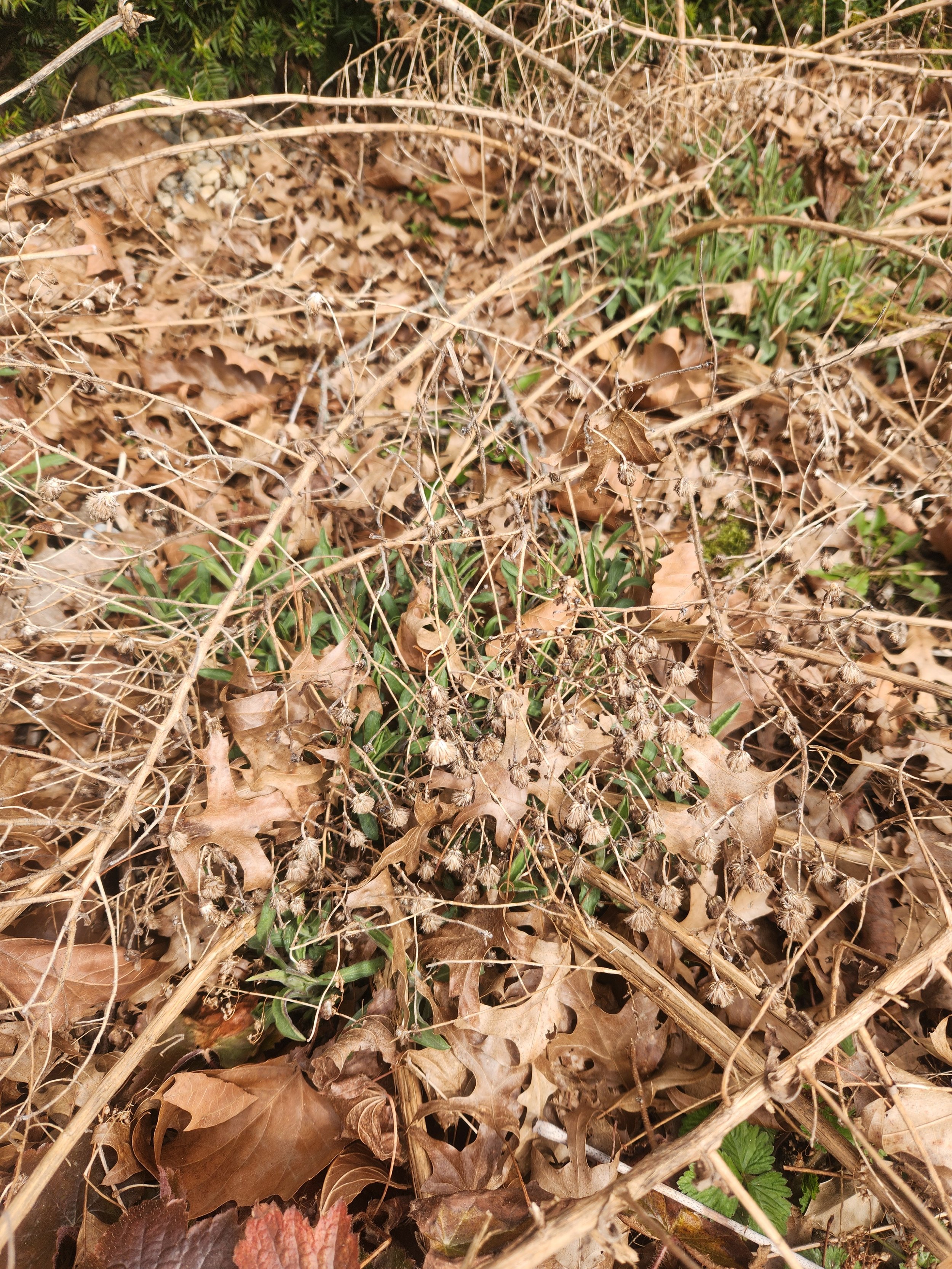Hush the Power Tools and Help Life Awaken In Your Yard
By Francesca Zahner
Francesca Zahner is an educator, writer, baker and avid reader. She is learning to ReWild in her small home garden which is being transformed bit by bit in Port Washington where she has lived for over 20 years with her husband and four children.
Overwintering chrysalis just inches below the ground
The whirr of landscaping tools has started way too soon. In the eager run-up to spring, leaf blowers have been unleashed in the quest for tidy yards free from the detritus of winter’s mess. If any lessons are to be gained from the erratic weather of recent years, we should not be surprised when balmy days that excite us into spring instead burrow back like the groundhog and yield to cold snaps that have us reaching once again for our sweaters and warm coats.
The plants that were offering up their buds suffer as they revert to a frozen state mid-bloom. But worse, in the rush to clean yards, plants and trees have had their winter blankets of leaves rudely pulled away so that the roots and soil are exposed prematurely to the low temperatures of lingering winter days. And even worse yet, those leaves were providing habitat to overwintering insects, food and nesting materials for birds, and larvae beds for beneficial insects and pollinators that will soon emerge.
When I hear leaf blowers and see eager landscapers, I see habitats being removed and opportunities for those new insects to emerge stripped away yielding continued loss of insects as the final stages of their life cycles are prematurely ended. To think that I never knew this: it is only recently and currently that I continue to learn about our fragile ecosystem and the role each of us play in nourishing it to improvement rather than unknowingly thwarting its success.
Goldenrod under the leaves
Many people strip away their leaves before the winter even begins, leaving bare soil that is harmful to plants and trees as their winter protection is removed. Many species of insects rely on those fallen leaves for cover. Doug Tallamy says, “the best place to leave the leaves is under the trees that grew them.” Those who leave leaves often do not realize the importance of leaving them through late winter and early spring until the temperatures have consistently reached 50 degrees for a period of 10 days including non-freezing nighttime temperatures. To remove them defeats much of the purpose of their overwintering. Removing nature’s very own mulch prohibits one purpose of the leaves: as they break down they provide not only habitat but natural nutrients and nourishment for trees and plants.
Why the rush? Consider leaving your leaves until the temperatures warm further. Perhaps, like me, now when you see leaves, instead of a mess, you will learn to see the beauty in the natural world’s own life cycles and the benefits you are contributing to our precious ecosystem.
Chickadee on Blue Lobelia stalks
Aromatic aster emerges through the leaf litter




